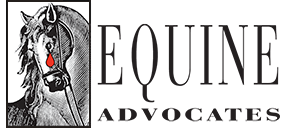
“The Call of the Wild” for America’s Wild Horses and Burros Was Heard in Washington
A message from President & Founder Susan Wagner
Dear Friends!
What a “wild” couple of weeks it has been!
The events leading up to what I can only hope will be a reversal of fortune for America’s Wild Horses and Burros and the vast Public Lands, which comprise their natural habitats, have been nothing short of dramatic. I am not saying that these animals will be protected and safe from slaughter permanently. Nor am I saying that those members of Congress controlled by special interests looking to destroy and drive them from their homes, so that they can privatize, sell, and profit off their rangelands, will suddenly have a change of heart. I am certain they will not.
What I am saying, however, is that when Americans from all walks of life and all across this great country get angry and come together with one strong voice, mountains can be moved, and that is exactly what has been happening.
The fact is that Americans want to add to our Public Lands and National Parks, not take lands away or destroy them with more ranching, drilling, mining, fracking, and development. It is also a fact that the vast majority of Americans strongly oppose horse slaughter and do not want our Wild Horses and Burros to be uprooted and sold for that purpose. In an age where special interests have been given more power in nearly every area, it is encouraging that the language of the Reconciliation Law passed on July 4, 2025, did not include the hostile amendment that would have privatized our Public Lands.
In addition, this administration’s proposed budget for the Fiscal Year of 2026, which called for a massive 25% cut to the Bureau of Land Management’s Wild Horse and Burros Program, has thankfully been rejected by the House Appropriations Committee. The cuts would have put these animals at risk for slaughter, especially the more than 64,000 Wild Horses being held captive in government pens. In fact, the committee has allocated $144 million to fully fund the program. However, it is not time to celebrate yet, as this is not a done deal. It remains to be seen whether the language protecting these animals from slaughter will be included in the final version of the bill.
Therefore, it’s vitally important that we all keep the pressure on our members of the House and Senate who will be voting on these issues in the FY26 Appropriations Bill. Please call your two U.S. Senators and your Member of the House of Representatives through the Capitol Switchboard at (202) 224-3121. Urge them to include strong protections against the sale to slaughter or killing by other lethal means of Wild Horses and Burros in the FY26 Interior Appropriations Bill.
The truth is, there is much more work to be done to protect America’s wild and domestic equines. Having tens of thousands of Wild Horses and Burros in overcrowded government holding facilities is not a humane solution for these animals. They need to be returned to the wild and managed there, and not forced to live under cruel and unnatural conditions.
Also, a strong federal ban on horse slaughter that does more than get half the job done must finally be passed. The 2025 SAFE Act only addresses the slaughter of horses for human consumption. It needs to be amended to include consumption of any kind, whether it is used to feed humans or animals. This can easily be accomplished by simply removing the word “human.” Also, the word “intra” needs to be added to the bill to cover both intra and interstate commerce, etc.
These are simple but absolutely necessary changes to fully protect America’s equines from slaughter once and for all. We will be writing more about the SAFE Act and the horse slaughter issue in the coming weeks and months.
Onward!
Sincerely,
Susan Wagner, President






